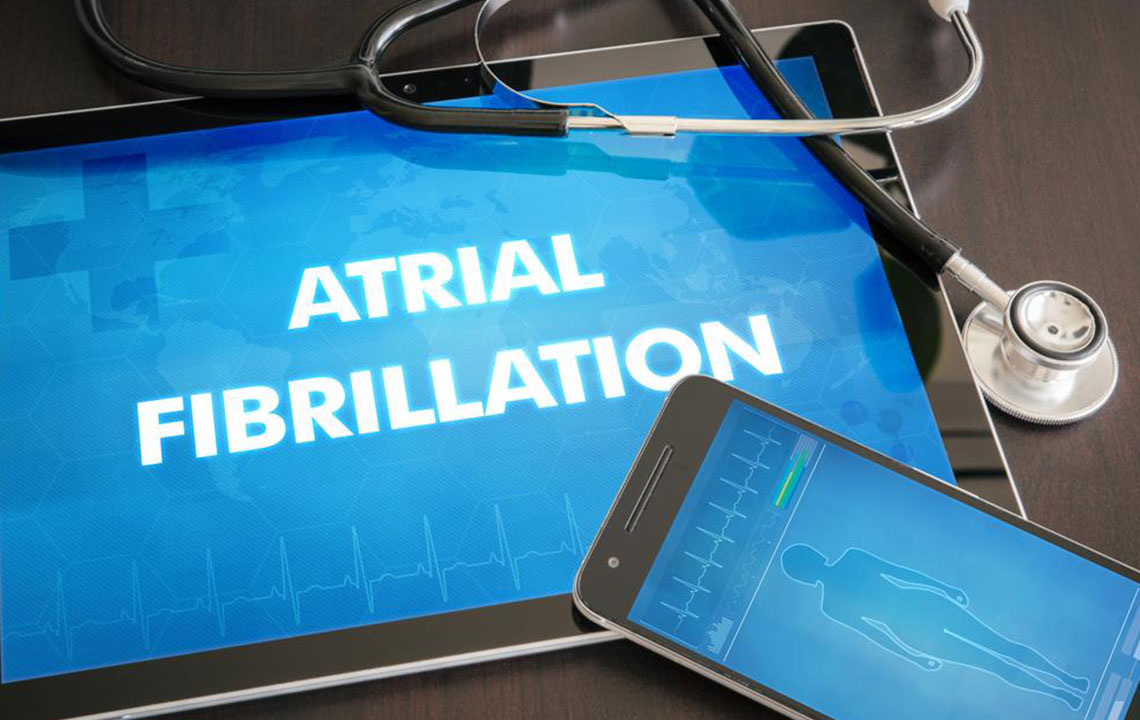Atrial Fibrillation Treatment Options That Can Save Your Heart and Life
Atrial fibrillation, commonly known as Afib or abbreviated to AF, is a condition in which a patient shakes uncontrollably or has an inconsistent heartbeat. The irregular or quivering heartbeat can result in many heart associated difficulties. The complications can include strokes, heart failure, and blood clots. There are many atrial fibrillation treatment options available. But first, let’s take a look at some of the symptoms.
Symptoms Of Atrial Fibrillation
There is a very good chance that the symptoms can go unnoticed. Many of these symptoms don’t really raise the kind of red flag that a complicated ailment tends to do.

Some of the symptoms, a person suffering from atrial fibrillation experience are:
- Chest Pain
Chest pain must never be ignored. Chest pain can be a result of something as minor as gas or something as major as a heart attack. So, it’s better to not take a risk.
- Dizziness
If the feeling of dizziness is persistent, you should see a doctor.
- Lightheadedness
Lightheadedness in layman terms can be a condition where a person feels he or she might faint.
- Fatigue
Fatigue means a condition of extreme tiredness. It can be due to exertion, both, mental and physical, and in some cases, a symptom of this disease.
- Decreased Capacity To Exercise
If you have been experiencing difficulty following your regular exercise routine, don’t take it very lightly. The stamina of a person is directly proportional to the condition of their hearts.
- Palpitations
Palpitations are feelings of an irregular heartbeat or a flip-flopping in the chest. If you are having difficulties in breathing, you should get your health checked.
These symptoms of atrial fibrillation are not exclusive. All the signs and symptoms are common to many other health conditions. So, the best way to determine whether you are suffering from atrial fibrillation is to get a medical examination. Especially if you have been experiencing the above-mentioned symptoms consistently, it’s better to play it safe.
Kinds Of Atrial Fibrillation
The condition of atrial fibrillation can be classified into the following four types:
- Occasional Atrial Fibrillation
This kind of atrial fibrillation is termed as paroxysmal. The symptoms, in this case, last for a very short period, which can range from few minutes to few hours.
- Persistent Atrial Fibrillation
This is the type where the heartbeat does not go back to normal on its own. Medical treatment is required to slow down the heartbeat such as electric shock or other such treatment.
- Long-Standing Persistent Atrial Fibrillation
If the condition lasts more than a year, it falls in the category of long-standing persistent atrial fibrillation.
- Permanent Atrial fibrillation
In a case of permanent atrial fibrillation, the irregular heartbeat cannot restore back to regular. The condition is permanent and requires medication to control the irregularity of the heart rate.
Atrial Fibrillation Treatment Options
Atrial fibrillation treatment options depend on the type, and duration of the condition. The most popular treatment options are:
Medication
For a majority of people suffering from atrial fibrillation, medication is the best form of therapy. Doctors prescribe medicines to prevent and cure blood clots and to regulate the heart rate. Many people discontinue their medication in between. The discontinuation of the medicines without consulting a doctor can be dangerous.
Medication For Preventing Blood Clots:
- Warfarin
- Other FDA-approved anticoagulants such as dabigatran, rivaroxaban, edoxaban, and apixaban
- Aspirin (in rare cases)
Medication For Controlling Heart Rate:
- Beta Blockers : These medicines help slow the heart rate.
Some popular medicines are atenolol, bisoprolol, carvedilol, metoprolol, and nadolol.
- Calcium Channel Blockers: The drugs work in multiple ways. They slow the heart rate and minimize the strength of the muscle cell contraction.
Some popular medicines are diltiazem and verapamil.
- Digoxin : It slows the rate at which electrical currents flow from the atria to the ventricle.
Surgical Procedures:
Surgery is also one of the atrial fibrillation treatment options available to cure the patient. There are two ways in which surgery can assist in the said condition:
- Pacemaker
A pacemaker is surgically implanted in the body, which can assist in the regulation of heart rate.
- Open-Heart Maze Procedure
It is a very complicated surgery, which in return gives the patient healthy heart rate.

